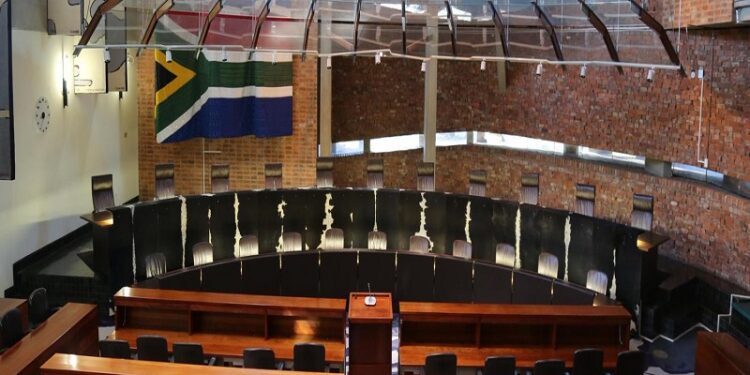By Ragheema Mclean
Three decades since the dawn of democracy in South Africa, the Constitutional Court (ConCourt) the highest court in the land, which deals with the application and enforcing constitutional matters has performed well in the first 15 years since democracy, but cracks started showing in the second part of the democratic era.
This is the view of Professor Emeritus of Public Law and Senior Research Scholar at the University of Cape Town, Hugh Corder.
Speaking on VOC’s Drive Time show on Tuesday, Corder acknowledged the court’s remarkable performance in the first 15 years of democracy.
“One should never underestimate the achievement of establishing a court after Apartheid where the courts were under the doctrine of parliamentary sovereignty subject to the laws of the country as that time. They had no right to second guess the justice or the constitutionally and laws of the country.”
Established in the aftermath of Apartheid, the court has been lauded for its landmark decisions in civil, political, and socio-economic rights. Despite facing criticism for being overly cautious in ensuring these rights, the court has sensibly recognized the limitations of resources in providing for socio-economic rights such as health, housing, and water.
The Constitutional Court heard its first case in early 1995, with a very strong bench of 11 justices. Almost all of them had a very good sense of the political landscape.
However, he notes cracks beginning to appear, particularly with the appointment of former president Jacob Zuma in 2009.
“Some of the difficulties has arisen the courts roll has become much more contested by those people who wish exercise public power in a corrupt or unlawful manner.”
What happened after 2009?
Corder said that since 2009, the court’s records have been mixed.
“The departure of the original members of the ConCourt, coupled with President Zuma’s views on democracy and judiciary, has led to increased contestation of the court’s role. Attacks on the judiciary, especially from those threatened by the court’s oversight, have also taken a toll on its functioning.”
He added, “The court’s under-capacitation, coinciding with the expansion of its appellate jurisdiction in 2013, has further strained its resources.”
Meanwhile, despite calls to increase the number of judges, Corder believes the fundamental issue lies in the constitutional requirement for all judges to decide on every question that comes before the court.
“In sum, the Constitutional Court has played a leading role in realising constitutional justice over the past 30 years, exceeding the expectations of many sceptics. However, many forces seek to undermine its role, and civil society needs to be resolute in defence of the court, while holding it to account and to remain true to its mandate.”
VOC News
Photo: ConCourtSA/X






 WhatsApp us
WhatsApp us 

